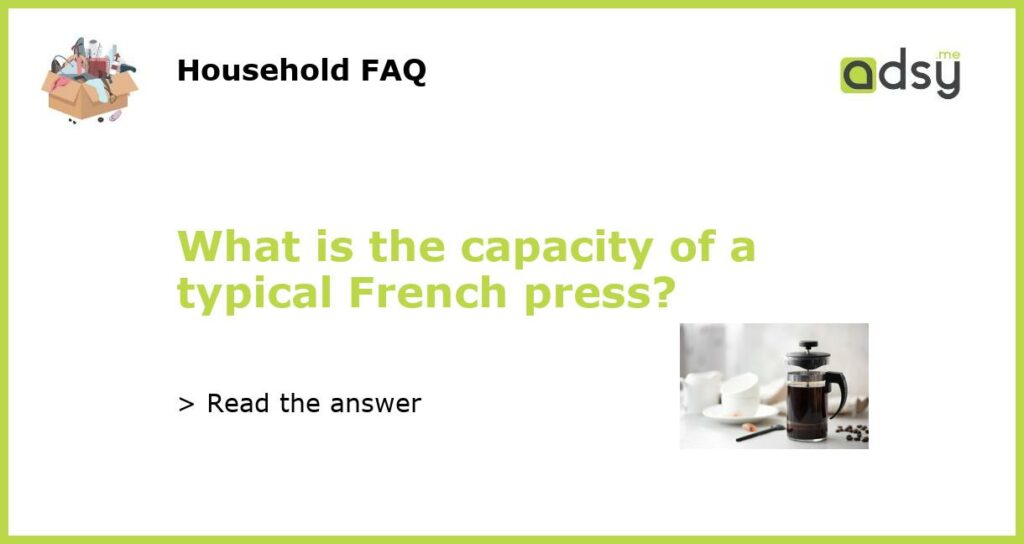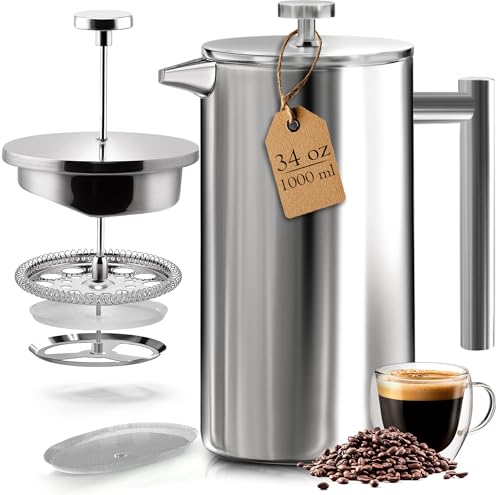What is a French press?
A French press is a coffee maker that is also known as a press pot or plunger pot. It consists of a glass or stainless steel cylinder that has a plunger with a metal or nylon mesh filter on one end. Coffee grounds are placed in the cylinder, hot water is added, and the mixture is allowed to steep for several minutes. The plunger is then pressed down, separating the liquid from the grounds.
What is the capacity of a French press?
The capacity of a French press can vary based on the size of the cylinder. A typical French press can hold anywhere from 12 to 34 ounces of liquid. However, you can find models that are smaller or larger than this range. If you’re unsure of what size to get, consider your coffee-drinking habits. If you’re the only coffee drinker in your household and only have one cup a day, a small press may suffice. But if you’re a heavy coffee drinker or entertaining guests, a larger press would be better.
How many cups of coffee can a French press make?
The number of cups of coffee that a French press can make depends on the size of the press and your definition of a cup. A standard cup of coffee is measured at around 6 ounces, so a 12-ounce press can make two cups of coffee. A 34-ounce press can make up to six cups of coffee. However, if you like a larger or smaller cup of coffee, you’ll need to adjust the amount of water and coffee grounds you use.
Is it possible to make more than one pot of coffee with a French press?
Yes, it’s possible to make more than one pot of coffee with a French press. Simply clean out the press, add fresh coffee grounds, add hot water, and repeat the brewing process. Depending on the size of your French press and your coffee-drinking habits, you may need to make more than one pot of coffee to get through the day.
What are the advantages of using a French press?
There are several advantages of using a French press, including:
- The ability to control the brewing time and strength of your coffee.
- The lack of paper filters, which can trap and remove some of the coffee’s essential oils and flavors.
- The simplicity of the brewing process, which requires few parts and minimal cleanup.
- The cost savings over time, as you won’t need to buy paper filters or a more expensive coffee machine.






